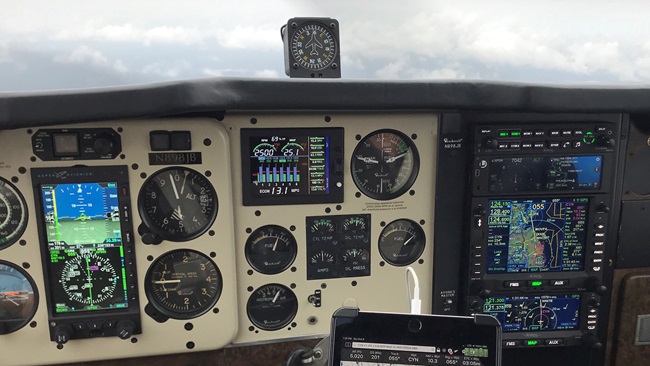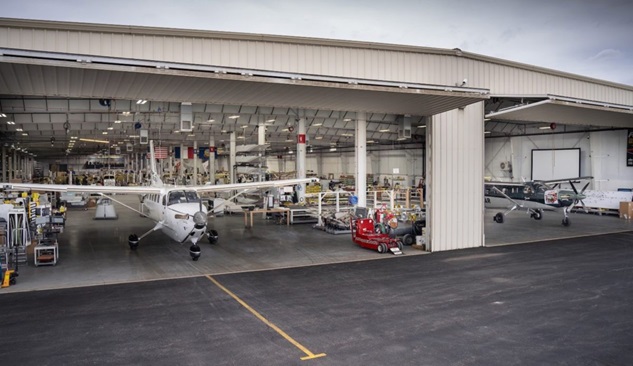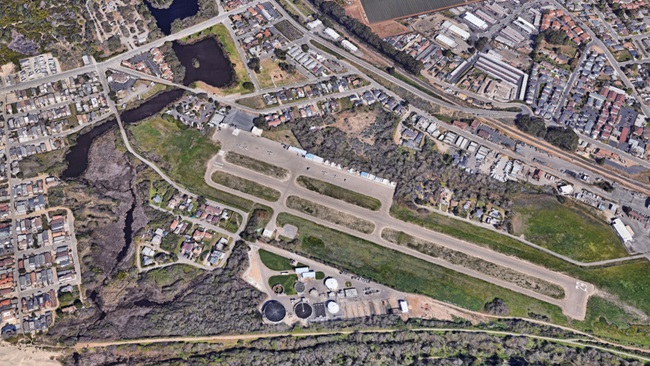Criminal charge for hangar golf cart?
AOPA joins local pilots seeking sensible enforcement
Rob Moore was looking at a criminal charge for keeping a golf cart in his rented hangar at Honolulu International Airport, a golf cart he had already been given permission by airport management to use for moving his aircraft on the ramp.
Moore, the president of the General Aviation Council of Hawaii and a tenant of the T-hangars tucked away in a corner of the sprawling facility, was not alone: About three dozen or so of Moore’s fellow tenants were in the same hot water following a crackdown that began in September.
Unlike past years, when a visit by state transportation staff might produce a warning or cautionary note about messy conditions, or a reminder of certain prohibitions, they suddenly lowered the boom on wrenches and pitching wedges. Inspection teams that included sheriffs, FAA officials, fire officials, and state transportation personnel issued criminal citations for anything found inside of a hangar in September that was not part of an aircraft—tools, golf clubs, and Moore’s golf cart among the examples.
Finding a citation on the hangar floor was a sharp departure from past years, when Moore’s golf cart had not drawn any official interest at all (it had an airport sticker, for one thing). Matters only got worse as Moore and other affected pilots consulted with attorneys: A quirk of state law made the citations, in the way they were issued, criminal charges that put airman certificates and, in some cases, careers in peril, Moore said.
“They went through with a vengeance and wrote up everything you could imagine,” Moore recalled in a telephone interview. “We were just appalled by this.”
Advised by attorneys that fines of $25 or $50 could ultimately become criminal convictions subject to mandatory reporting on medical certificate applications, Moore approached his contacts at the state Department of Transportation, and briefed them on the “devastating” consequences of their new approach. Moore said a request that further inspections be delayed pending a review of the new enforcement regime by the state attorney general was rebuffed. The state, Moore was told, needed to be “fair to everyone,” and continue inspecting the rest of the T-hangars. Those inspections produced more citations, though Moore said some hangar tenants were spared because the inspection teams split up to cover more ground, and only those inspections conducted by sheriffs resulted in criminal citations, while simple warning letters or memos were left for others.
Moore is still waiting on a response to his own letter to the governor; General Aviation Council of Hawaii members have launched a letter-writing campaign to add to that mailbag, and contacted AOPA for support. Association staff have reviewed the applicable statutes and regulations, and joined the chorus calling for reasonable enforcement and restraint.
“This seems to us to be a significant overreaction to the nature and severity of the offense, and ripe for review by your office,” wrote AOPA Vice President of Government Affairs Greg Pecoraro in a Nov. 19 letter to state Department of Transportation Director Glenn Okimoto. “We are not aware of any other airport sponsor in the United States that imposes a criminal citation on individuals or organizations who allegedly violate hangar use policies.”
Fortunately, Moore and other hangar tenants who appeared in court were able to convert their potential felonies to the legal equivalent of parking tickets (Moore paid a $35 fine for his golf cart). Unless the laws, regulations, and procedures are changed, that’s a process they’ll have to go through the next time sheriffs come calling.
State officials issued a routine memo notifying “all concerned” in August that inspections were to be conducted in September, promising enforcement of state and federal regulations including FAA prohibitions against “unauthorized storage of non-aeronautical items,” operation of a business out of hangar space, residential living in hangar space, and “non-aeronautical activities.” The memo also noted fire codes and other state laws and regulations were to be enforced, though the memo did not specify that hangar storage of a pitching wedge would be deemed a criminal violation, or that law enforcement officers were to participate in the inspections and issue citations on the spot. (In years past, such matters had been handled with a warning.)
Moore said that memo was routine, an annual event stretching back 25 years, and drew no one’s attention at the time. He said the association fully supports sensible enforcement of prohibitions against living in a hangar, for example, or keeping livestock, but that violations should not be subject to felony conviction.
“We want to decouple these administrative rules from Hawaii criminal statutes,” Moore said.
AOPA will continue to work with affected aircraft owners and state officials in hope of finding a sensible solution.
Pilot protest
The General Aviation Council of Hawaii has urged members to sign a letter to Gov. Neil Abercrombie which notes that hangar inspections had been conducted uneventfully since the hangars were built about 25 years ago, until September: “Good people are now in jeopardy of losing their security clearances and careers if a criminal conviction appears in their file … This unreasonable approach by (state Department of Transportation Aviation Division) management is unacceptable and the ramifications are catastrophic for GA in Hawaii.”



